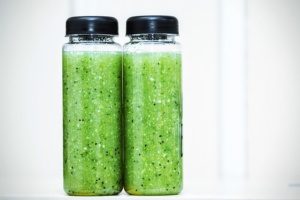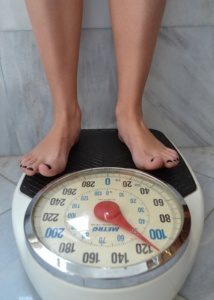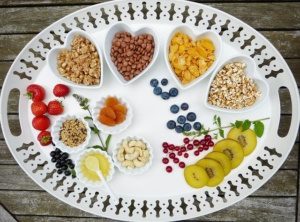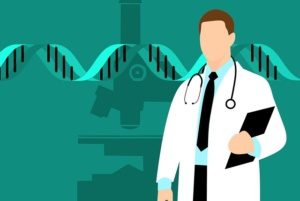Detox, Detoxification, Purification – Does It Make Sense?
Detox diets grace the pages of almost every magazine, especially at the start of each year, promising purification and revitalization. These regimens are often touted as beneficial for various ailments, including conditions like endometriosis. Proponents claim that these diets can rid the body of ‘toxins,’ which are believed to be potential triggers for conditions like endometriosis. The idea is to ‘drain’ these toxins from the body through ‘detox cures.’
In essence, ‘detox’ is a shortened form of ‘detoxification,’ and products or diets labeled as ‘detox’ are designed to eliminate toxins from the body or, in some cases, ‘purify’ specific organs, such as the liver, and remove stored toxins. However, it is essential to note that these terms are not commonly used in scientific or medical contexts.
What Types of Detox Diets Are Available?
The market offers a plethora of detox diets and products, all intended for detoxification. Even organic food stores carry powders and supplements aimed at supporting detox diets. Typically, these diets recommend specific fruits or vegetables for detoxifying certain organs, resulting in various detox diet forms. Some common examples include liver detoxification, kidney detoxification, blood purification, respiratory purification, urinary tract cleansing, and colon cleansing. Essentially, there seems to be no limit to the diversity of detox diets. The methods for these diets vary widely. Some advocate the consumption of powders or supplements, while others emphasize the avoidance of certain foods or the exclusive consumption of particular items. However, the critical question remains: How effective are these detox diets?
Positive Effects of Detox Diets
Detox diets can have several positive effects on the body. They often involve consuming large quantities of fruits and vegetables, excluding animal and industrially produced foods. As a result, the body is typically better supplied with vitamins, minerals, and phytonutrients throughout the diet. This can be particularly beneficial for individuals who regularly consume processed foods.
Another advantage of detox diets is that they encourage a more intensive focus on nutrition, allowing individuals to recognize and correct potential dietary mistakes in their everyday lives. Such a diet may lead to a healthier lifestyle or modest nutritional improvements.
Furthermore, detox diets tend to be low in fat, which can improve blood lipid levels and potential weight loss during the diet. However, it is essential to note that these effects are often temporary, as returning to previous eating habits can reverse the benefits gained during the diet.
Negative Aspects of Detox Diets
Initiating a ‘detox day’ where only fruits and vegetables are consumed is generally neither unhealthy nor dangerous. However, the situation can take a critical turn from the second day onwards, potentially leading to malnutrition.
As humans, we are ‘omnivores,’ meaning we require a balanced, diverse diet to meet our nutritional needs for overall health optimally. This extends beyond fruits and vegetables, although plant-based foods are generally advisable.
Detox diets typically lack or provide minimal complex carbohydrates (found in cereal products) and proteins (found in dairy products, legumes, eggs, meat, fish, etc.). Consequently, these diets may lead to undernourishment, particularly affecting muscle mass and brain function.
The Scientific Perspective on Detox
The central premise of detox diets often revolves around their supposed ‘purifying’ or ‘detoxifying’ effect. However, the consensus among medical experts and scientists is that such effects do not occur and are not truly necessary. ‘Slags’ refer to residues produced during combustion, ore smelting, or volcanic eruptions. While our bodies engage in biological processes like combustion, ‘slags’ do not accumulate within us.
Our bodies have a liver, kidneys, and intestines, well-equipped to eliminate harmful substances without detoxification regimens. Scientific and medical explanations exist for the claims made by proponents of detoxification, but these explanations are unrelated to the concept of purification itself.
Nevertheless, moderation is key. While the body can naturally detoxify and metabolize harmful substances, certain compounds like heavy metals, pesticides, and residues from the petroleum industry in cosmetics and food can accumulate in the body, primarily in fatty tissues. Detox diets do not effectively remove these substances. Thus, it remains essential to prevent their entry into our bodies in the first place.
Recommendation
Given that waste products are not retained in the body, and our bodies are fully capable of eliminating their own ‘toxins,’ it becomes evident that detox diets lack a meaningful purpose. However, valuable aspects of the ‘detox philosophy’ can be embraced. A ‘detox diet’ emphasizes ample fresh fruits and vegetables (free from pesticide contamination), excludes meat, unhealthy fats, and industrially processed foods, and often limits or eliminates sugar and sweeteners like honey.
‘Detox’ regimens, ‘purification’ rituals, or ‘detox diets’ should not be regarded as necessary, as they lack scientific validation and are no substitute for a healthy and balanced way of life. You can find additional information here to explore nutrition in the context of endometriosis. Perhaps you might consider adopting the ‘detox’ approach of ‘more fruits and vegetables, less fat and sugar’ into your daily life.
- Finding the Perfect Nutritionist: A Step-by-Step Guide - 5. October 2023
- Does Monk’s Pepper Help with Endometriosis? - 5. October 2023
- A Brief Overview of Dietary Fats - 29. September 2023




